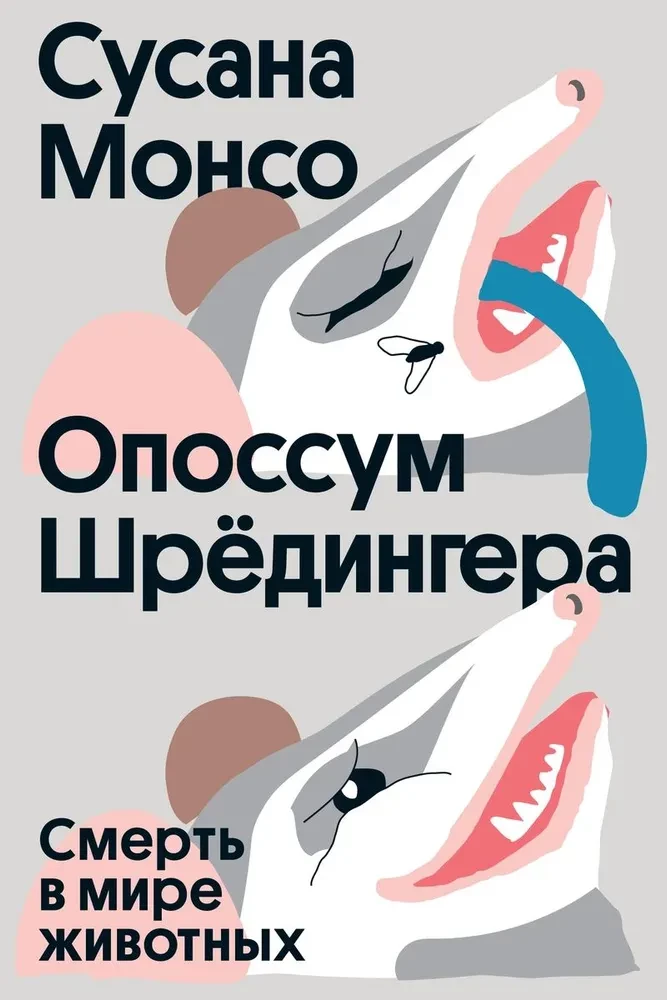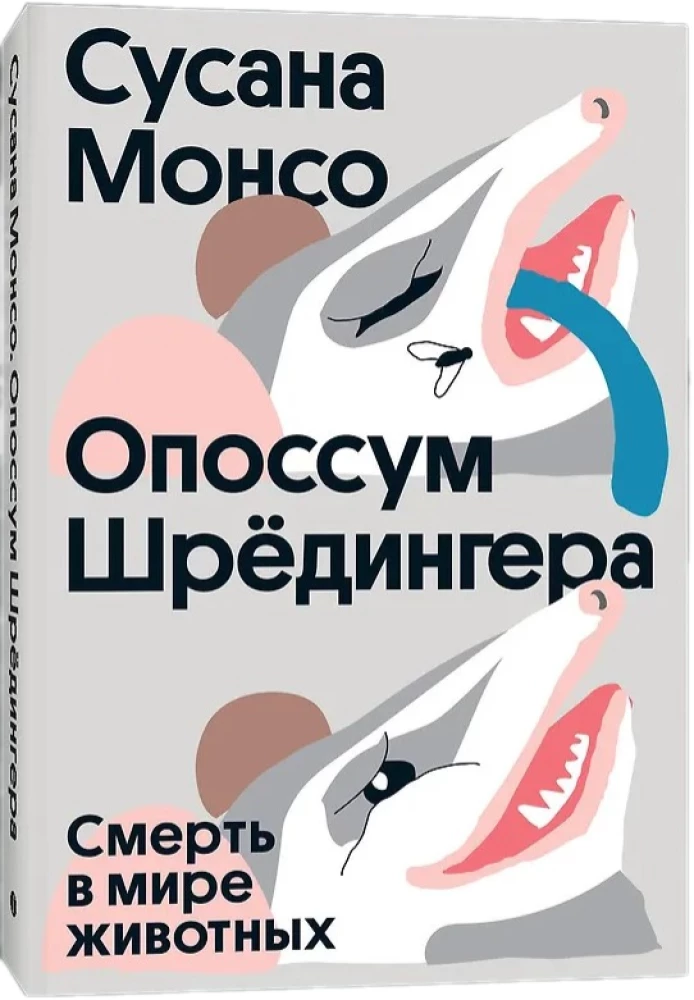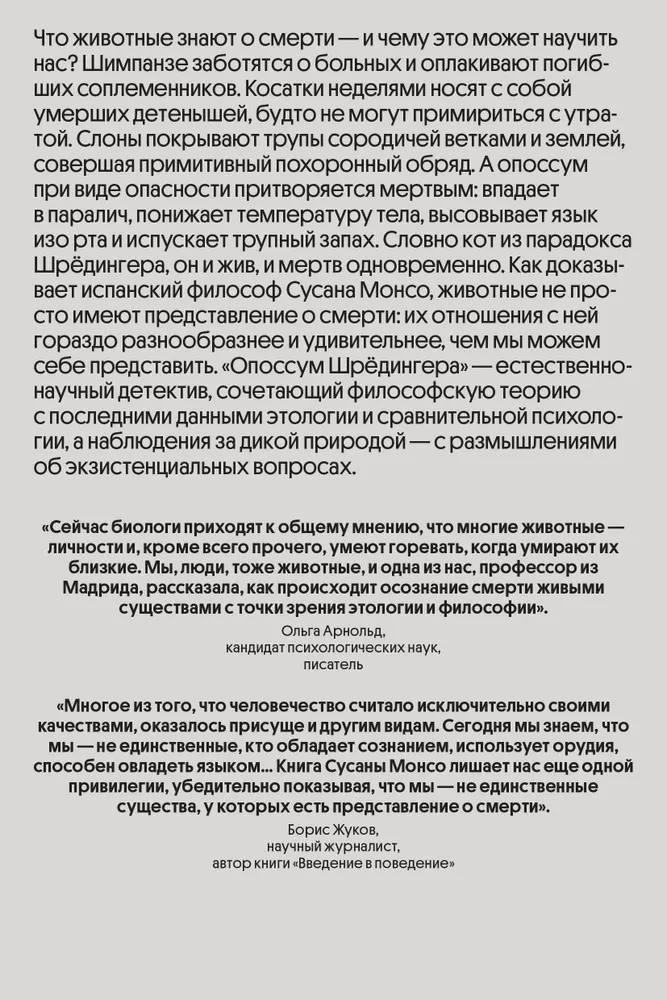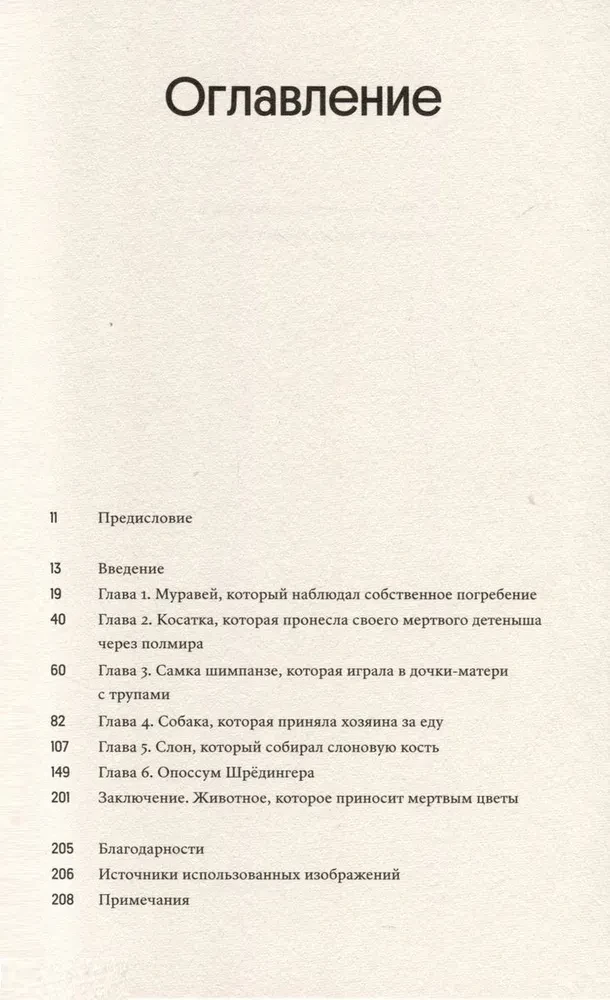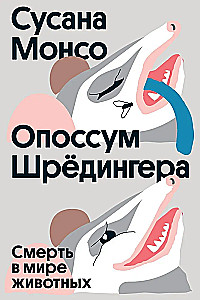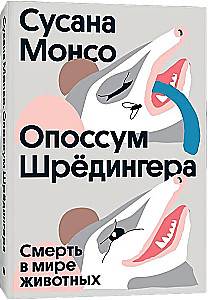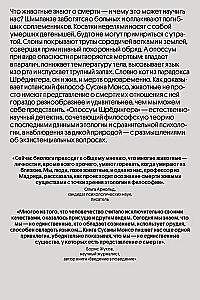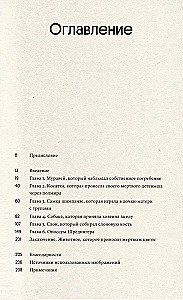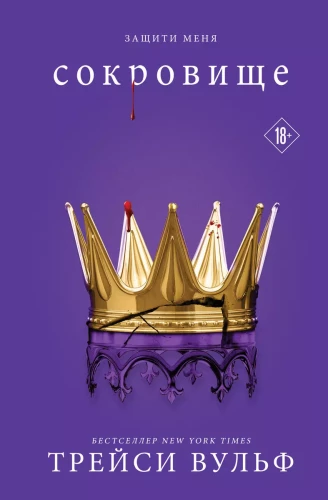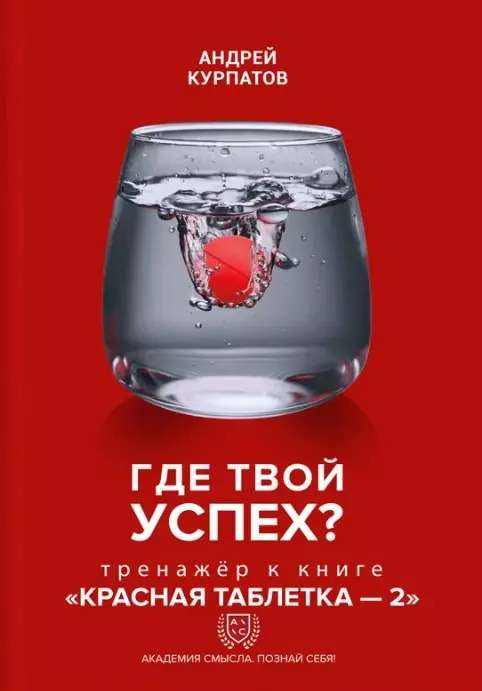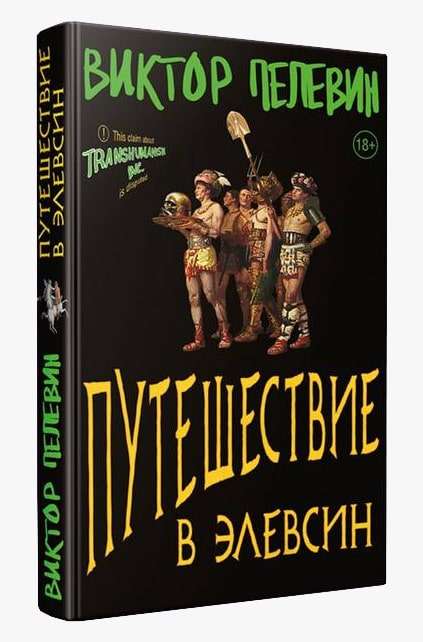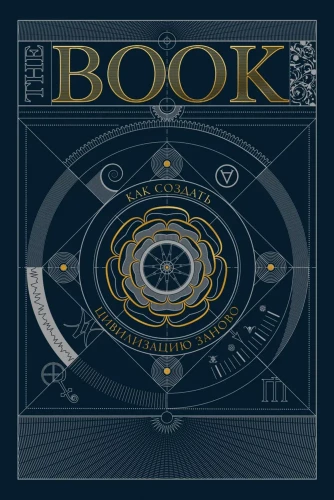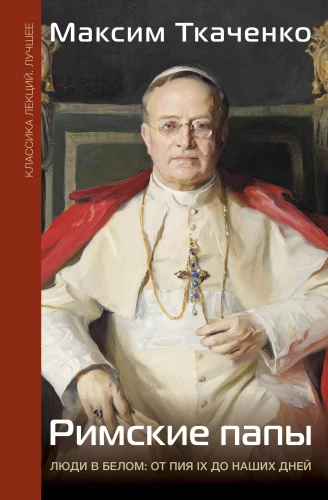Schrödinger's Opossum
What do animals know about death — and what can it teach us? Chimpanzees care for the sick and mourn their deceased peers. Orcas carry their dead calves with them for weeks, as if they cannot reconcile themselves with the...
loss. Elephants cover the bodies of their relatives with branches and earth, performing a primitive burial rite. And the opossum, when faced with danger, pretends to be dead: it goes into paralysis, lowers its body temperature, sticks its tongue out of its mouth, and emits a decomposing smell. Like the cat from Schrödinger's paradox, it is both alive and dead at the same time. As Spanish philosopher Susana Monso proves, animals do not merely have a notion of death: their relationships with it are much more diverse and astonishing than we can imagine. "Schrödinger's Opossum" is a natural science detective story that combines philosophical therapy with the latest data from ethology and comparative psychology, and observations of the wild with reflections on existential questions.
As Spanish philosopher Susana Monso proves, animals do not merely have a notion of death: their relationships with it are much more diverse and astonishing than we can imagine. «Schrödinger's Opossum» — a natural science detective story that combines philosophical theory with the latest data from ethology and comparative psychology, and observations of the wild with reflections on existential questions.
About the author: Susana Monso — Doctor of Philosophy (PhD), lecturer at the National University of Distance Education in Madrid in the Department of Logic, History and Philosophy of Science. She studies the cognitive abilities and social behavior of animals.
Author: Сусана Монсо
Printhouse: Individuum
Series: INDIVIDUUM
Age restrictions: 16+
Year of publication: 2023
ISBN: 9785604829806
Number of pages: 224
Size: 212х142х18 mm
Cover type: soft
Weight: 228 g
ID: 1717080
from € 38.94
